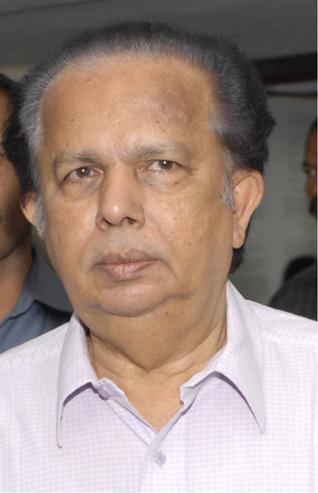 New Delhi, May 16: Things have got tougher for the former Secretary of the Department of Space and former ISRO Chairman, G. Madhavan Nair, with the Comptroller and Auditor-General also finding fault with the way the Space Department, under his stewardship, went about the deal between ISRO's Antrix Corporation and the Bangalore-based private firm, Devas Multimedia.
New Delhi, May 16: Things have got tougher for the former Secretary of the Department of Space and former ISRO Chairman, G. Madhavan Nair, with the Comptroller and Auditor-General also finding fault with the way the Space Department, under his stewardship, went about the deal between ISRO's Antrix Corporation and the Bangalore-based private firm, Devas Multimedia.
Calling the Antrix-Devas agreement a “classic case of public investment for private profit,” the CAG, in a report tabled in Parliament on Tuesday, noted that Mr. Nair failed to convene meetings of the INSAT Coordination Committee as its Chairman and as a result, the concerns of key stakeholders, represented through the Secretaries of different Ministries and Departments, were “effectively blocked off” in the decision-making process.
“The Department of Space [under Mr. Nair], in its eagerness, went beyond its remit as laid down in the Allocation of Business Rules [of the government], concealed facts from the Union Cabinet and violated numerous rules, policies, and procedures.”
The department took upon itself the task of approving the new hybrid S-band DMB service, which, as in the case of DTH services, was the prerogative of the Union Cabinet. “Valuable spectrum frequencies, including 10 MHz, were to be reserved for strategic purposes, [but] were earmarked for Devas without obtaining approval of the Wireless Planning and Coordination [WPC] wing of the DoT [Department of Telecommunication].”
Likewise, the report noted, the Space Department had “suppressed” the crucial fact that it had already signed an agreement with Devas, while seeking Cabinet approval for the launch of the GSAT-6 satellite, and also failed to inform the Cabinet that GSAT-6 and 6 A satellites, proposed to be funded from the government budget, were to be used almost entirely by a private commercial entity.
“To avoid the obtaining of approval of the Cabinet, the DoS [Department of Space] estimated the cost of GSAT-6A, the subsequent satellite of a similar configuration after GSAT-6, at Rs. 147 crore so that it fell within the financial competence of the Space Commission [though] the first GSAT-6 satellite had been costed at Rs. 269 crore.”
It also complained that Devas was extended a host of benefits to promote the interests of the U.S.-based private consultancy firm, Forge Advisors, which had set up Devas, including earmarking for it 70 MHz of S-band spectrum for an indefinite period of time, ignoring its revenue potential to the government.
“Subsequent events like the auction of 3G in which the government received Rs. 67,719 crore and the auction of Broadband Wireless Access where the government received Rs. 38,543 crore revealed that the possibility of obtaining commensurate amounts for providing this commercial service was never explored.”
The Antrix-Devas pact also “cherry-picked” from two different models in a way that it extended maximum benefits to Devas, the report said and complained that the Space Department “further went on to revise the contract to ‘reassure the investors' so that even before engaging in any trading, manufacturing ground segment development activity and rolling out of any service, it could raise Rs. 575.6 crore from foreign investors.”
Noting that there was need for the government to ensure that there was no conflict of interest so that fundamental integrity of decisions, departments and the government was not undermined, the CAG said that in the case of the Space Department such an issue was evident in the multiple roles exercised by Mr. Nair.
“As Chairman, ISRO, he appointed the Shankara Committee to examine the proposals of Forge Advisors. As Secretary, Department of Space, he submitted a note to the Cabinet, in which critical facts were concealed. As Chairman, Space Commission, he chaired meetings where approval to GSAT-6 and 6A were accorded.”
The CAG noted “the public interest and those of the government were sacrificed to favour a private consultancy firm, which was promoted by Sh D. Venugopal and Sh. M.G. Chandrasekhar, retired employees of the ISRO.”
“The Antrix-Devas deal,” it said, “is a classic instance of failure of the governance structure in which selected individuals, some serving and some retired public servants, were able to successfully propel the agenda of a private entity by arrogating unto themselves powers which they were not legitimately authorised to exercise.”
It also pointed out that “in the parliamentary system of government, the Cabinet has a role of centrality in the exercise of executive power. The fact that a group of individuals was able to conceal facts and side-step the Cabinet is a testimony to the extent of abuse of the trust reposed in them. This needs to be addressed.”





Comments
Add new comment